Sundays
The Man Who Saw the Angel: Andrei Tarkovsky
Programmed by Brian VandenBos
"Tarkovsky for me is the greatest [director], the one who invented a new language, true to the nature of film, as it captures life as a reflection, life as a dream."
-Ingmar Bergman
One of the most influential directors in the history of cinema, the Russian filmmaker Andrei Tarkovsky (1932-1986) remains a relevant figure across artistic disciplines over thirty years after his death. Each of his films are masterpieces and feature striking visuals, long takes, and spiritual explorations of the human condition. Tarkovsky's nonlinear narratives are complex, yet unified by visual and aural themes. Such motifs, often elemental and relating to the natural world, run throughout his oeuvre, a poetic communication that is often best experienced intuitively rather than with intellectual comprehension.
The son of a prominent poet, Tarkovsky saw himself as a "Russian artist", a descendent of the country's spiritual and cultural heritage. Nonetheless, he routinely faced censorship from the Soviet authorities, eventually leaving his beloved country and completing his final two films in Italy (Nostalghia) and Sweden (The Sacrifice).
A celebration of his monumental legacy, this series is a complete retrospective of all seven of Tarkovsky's feature films--each on 35mm. Also included is his thesis film at the Soviet state film school (The Steamroller and the Violin) and a documentary he co-directed (Voyage in Time). This is a very rare opportunity to view all of Tarkovsky's feature films on celluloid and also follow the development of the stylistic and thematic concerns of this cinematic master.
10/6/2019 @ 7:00 PM
Ivan's Childhood
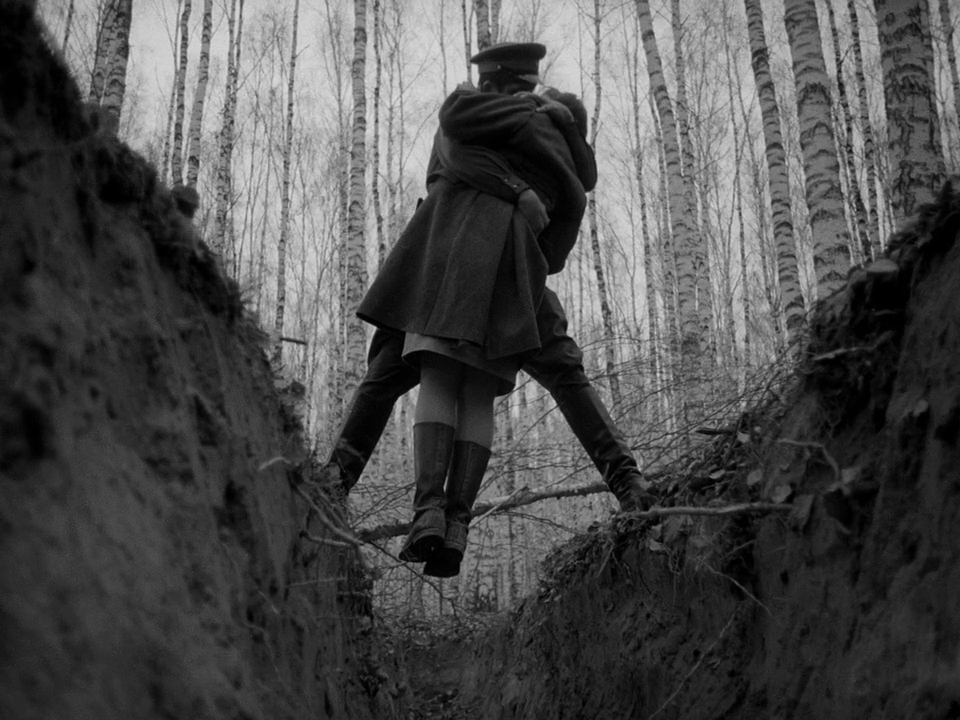
(Andrei Tarkovsky, 1962) · With his striking first feature, Tarkovsky found international acclaim, winning the Golden Lion at the Venice Film Festival. The film follows Ivan, a twelve-year-old orphan who acts as a scout for the Sovet Army during World War II. Tarkovsky poetically links Ivan's dreams and memories with the boy's grim reality. Ingmar Bergman called his discovery of Ivan's Childhood "a miracle," and the film remains Tarkovsky's most concise and accessible work.
runtime: 84m format: 35mm
10/13/2019 @ 6:30 PM
Andrei Rublev
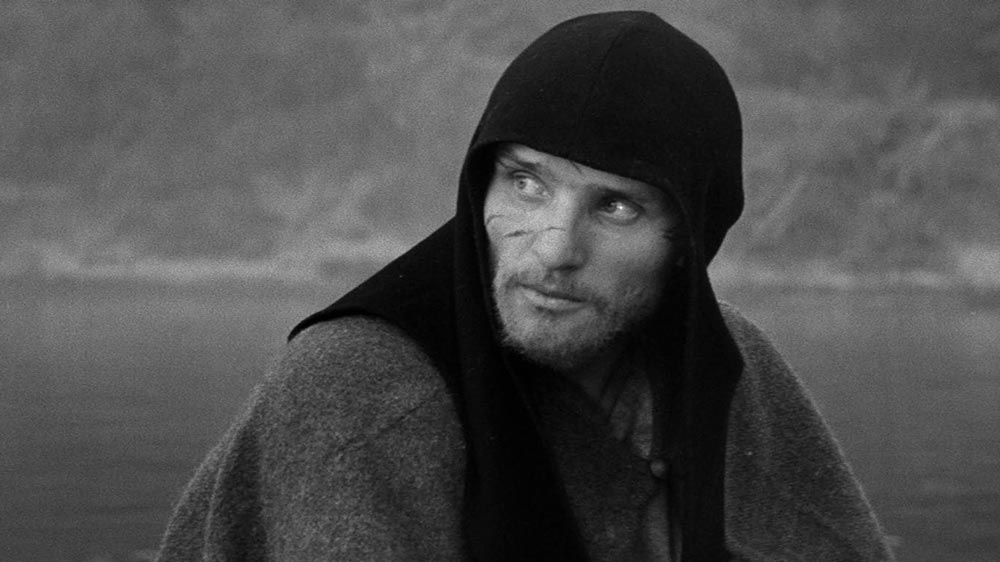
(Andrei Tarkovsky, 1966) · Tarkovsky's tour-de-force--his sophomore feature--depicts the life of the eponymous 15th-century Russian icon painter and his creative and spiritual struggles. Suppressed by Soviet censors for years after it was completed, the film is often ranked as one of the greatest of all time. Unfolding over the course of eight nonlinear episodes, Tarkovsky evokes a dreamlike yet earthy medieval Russia. In its exploration of the responsibility of the artist in society and the necessity for faith, it remains a deeply relevant film for our times.
runtime: 205m format: 35mm
10/20/2019 @ 7:00 PM
Solaris
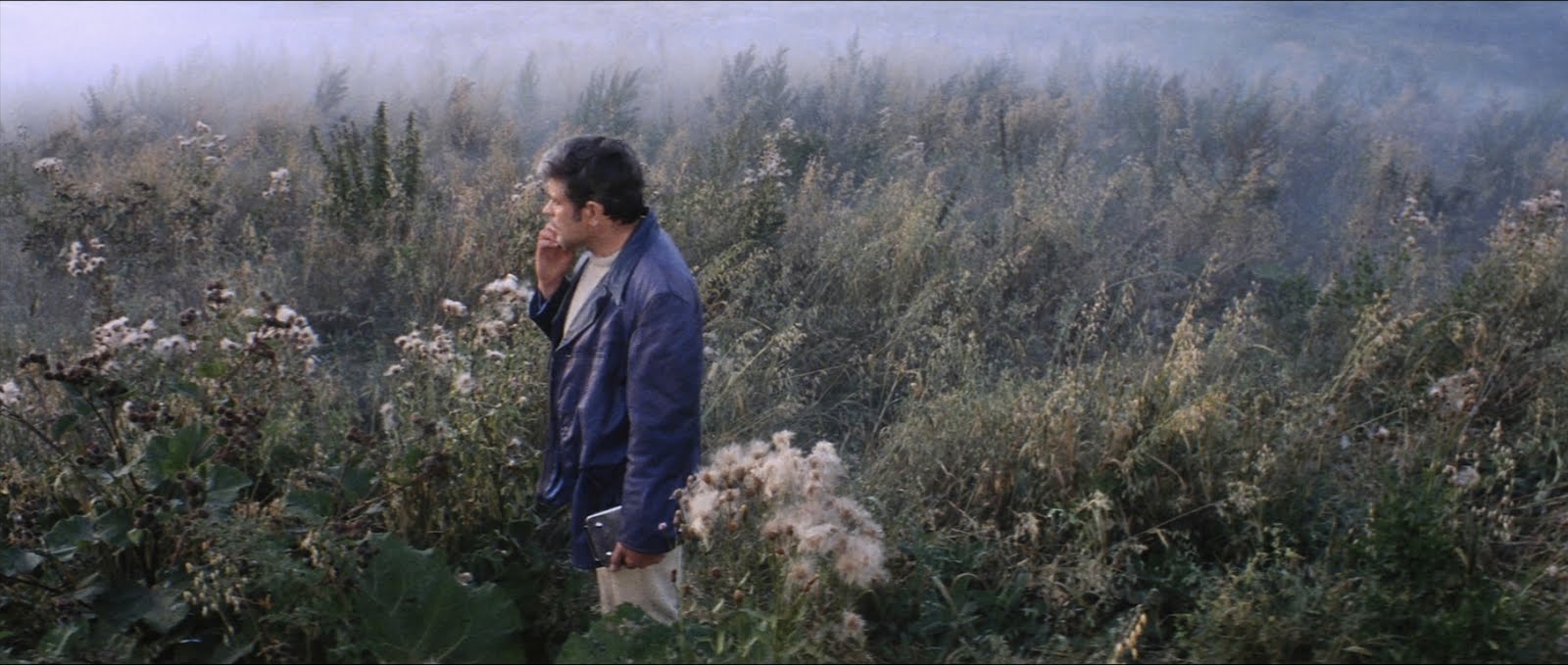
(Andrei Tarkovsky, 1972) · Based on the novel of the same name by Stanislaw Lem, Tarkovsky's unique science-fiction epic has become a classic of the genre. The story follows psychologist Kris Kelvin, who is sent to investigate strange occurrences at a research space station orbiting an alien planet. Succumbing to the same mysterious phenomena that affects the crew, Kelvin's memories and desires take sentient form. An atmospheric meditation on grief, Solaris raises questions of reality, identity, and humanity.
runtime: 167m format: 35mm
10/27/2019 @ 7:30 PM
Mirror
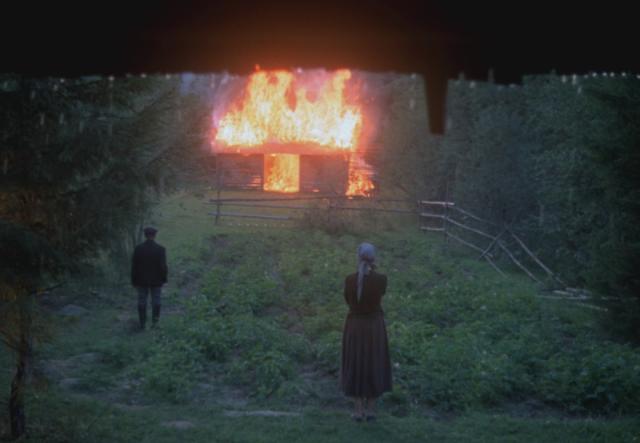
(Andrei Tarkovsky, 1975) · Tarkovsky's most autobiographical film, Mirror is a work that concerns itself with childhood and history. A film of the highest critical reputation, it is narrated by a forty-year-old dying poet through a nonlinear structure. Astonishing visuals, newsreel footage, and readings of the poetry of Tarkovsky's father (Arseny Tarkovsky) juxtapose to express memories both dreamlike and enigmatic. Exhibiting Tarkovsky's sculpting-in-time aesthetic to perfection, Mirror is a bold work, at once personal and universal.
runtime: 107m format: 35mm
11/3/2019 @ 7:00 PM
Nostalghia
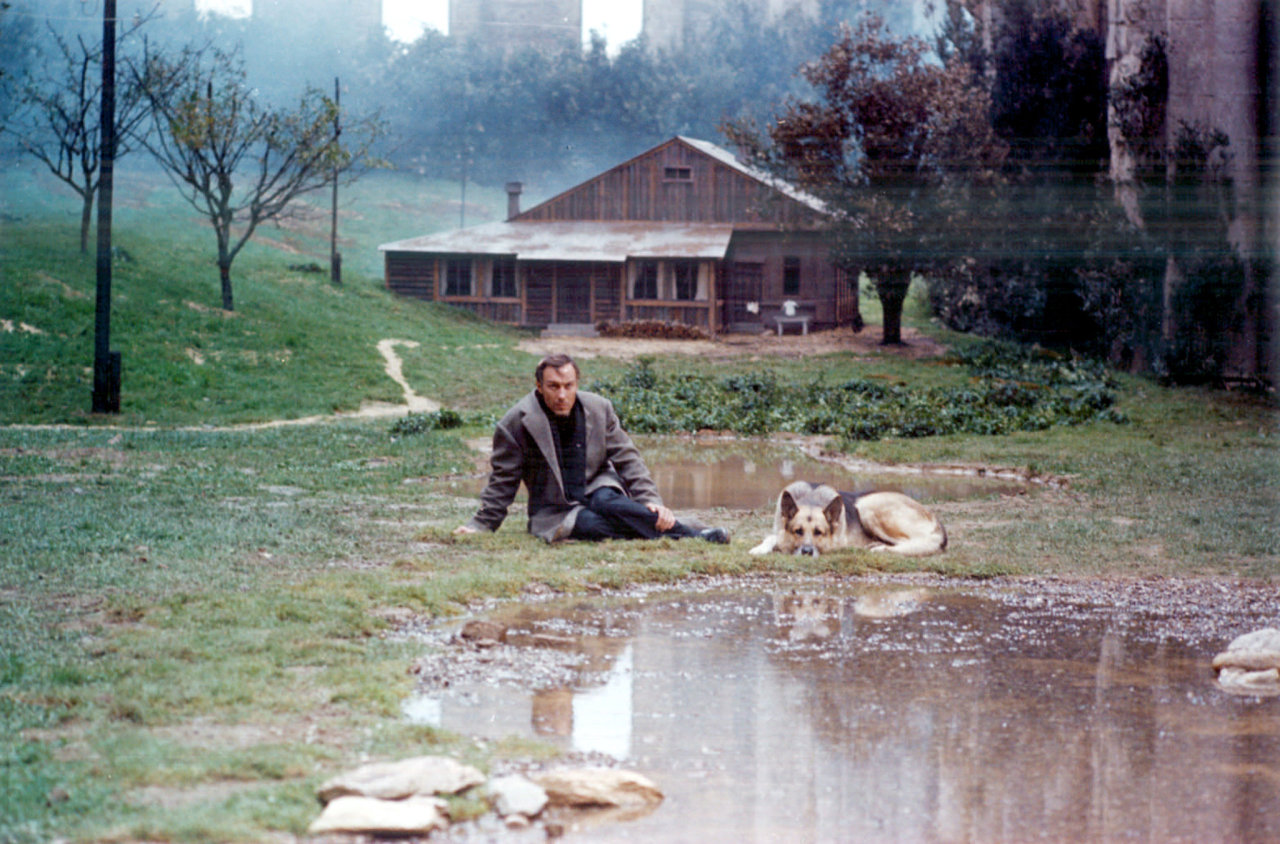
(Andrei Tarkovsky, 1983) · Life imitates art in Tarkovsky's first film made outside of the USSR. The filmmaker's penultimate work tells the story of a Russian intellectual, Andrei, who travels to Italy for a research project. Led in part by a beautiful translator-guide, Andrei encounters a madman who, fearing the apocalypse, once locked his family in a house for seven years. Tarkovsky explained that the word "nostalghia" in Russian expresses "the love for your homeland and the melancholy that arises from being far away."
runtime: 125m format: 35mm
11/10/2019 @ 7:00 PM
Stalker
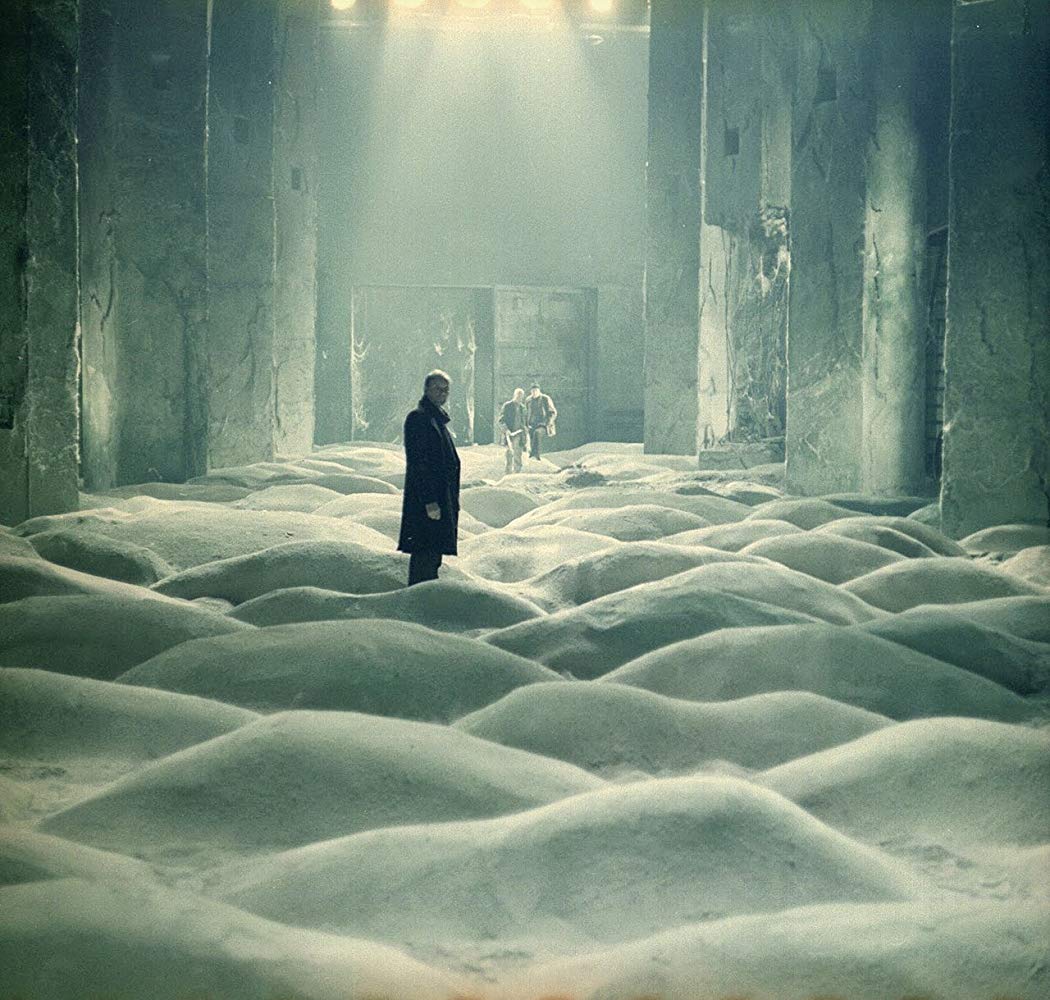
(Andrei Tarkovsky, 1979) · Film introduction by Professor Robert Bird! Tarkovsky's second science fiction film follows a "stalker" guide as he leads a writer and a professor into a mysterious territory known as the Zone. At the heart of the Zone is a room that is rumored to fulfill one's innermost wishes. The Zone's fantastic, post-apocalyptic landscape serves as the backdrop for the men's journey into their own souls. Atmospheric and metaphysical, Tarkovsky's final Soviet film has served as an inspiration for generations of artists.
runtime: 162m format: Imported 35mm
11/17/2019 @ 7:00 PM
The Sacrifice

(Andrei Tarkovsky, 1986) · Set on a remote island, Tarkovsky's mystical final film involves a middle-aged actor, Alexander, and his family when they receive news of nuclear war. Troubled by humanity's lack of spirituality, Alexander bargains with God to prevent the extinction of mankind. Filmed in Sweden by Ingmar Bergman's cinematographer, Sven Nykvist, The Sacrifice was made as Tarkovsky was dying of lung cancer. The film won the Grand Prix at the Cannes Film Festival and remains a moving and poetic last testament.
runtime: 149m format: 35mm
11/24/2019 @ 7:00 PM
The Steamroller and the Violin/Voyage in Time
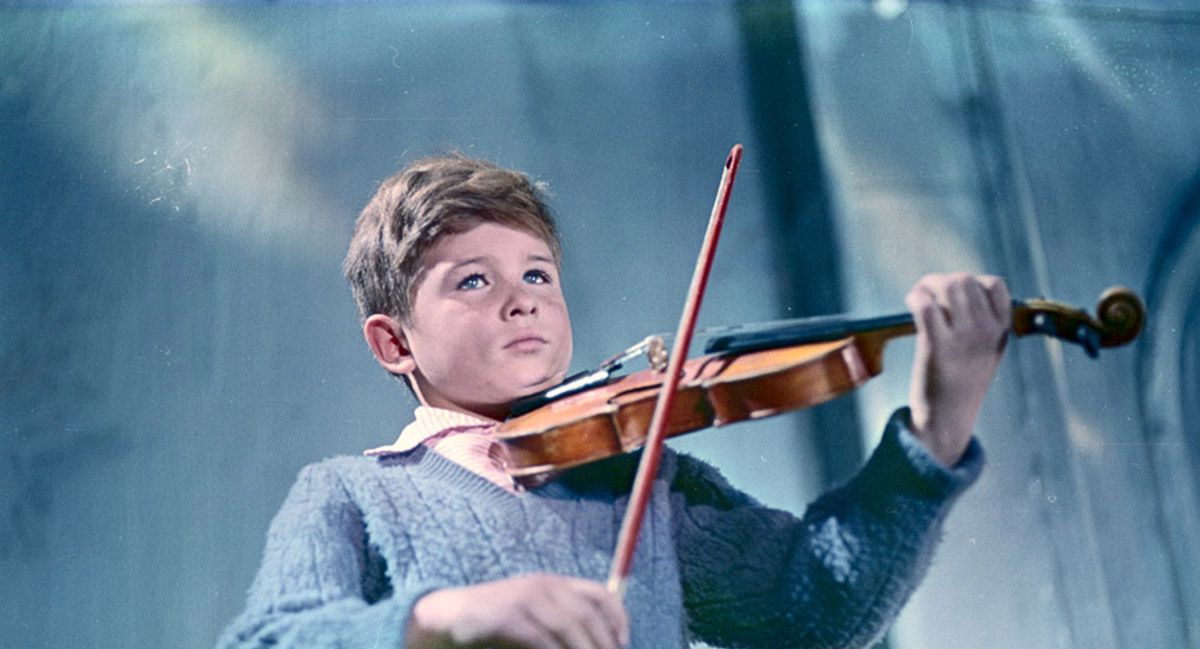
(Andrei Tarkovsky, 1961/1983) ·
Sasha, a seven-year old Russian violin student is befriended by Sergei, an adult steamroller operator in what was Tarkovsky's diploma film at the Soviet state film school. Influenced by The Red Balloon and the Italian neorealists, the film is a bittersweet and nostalgic look at childhood.
Co-directed by Tonino Guerra (subject of our Friday series), this documentary follows Tarkovsky and Guerra as they search Italy for locations and discuss ideas for a film (what would become Nostalghia). As much an inner journey for Tarkovsky himself, the film is an unconventional yet poignant look at Tarkovsky's creative process.
runtime: 46m/62m format: Digital
12/8/2019 @ 7:00 PM
Russian Ark
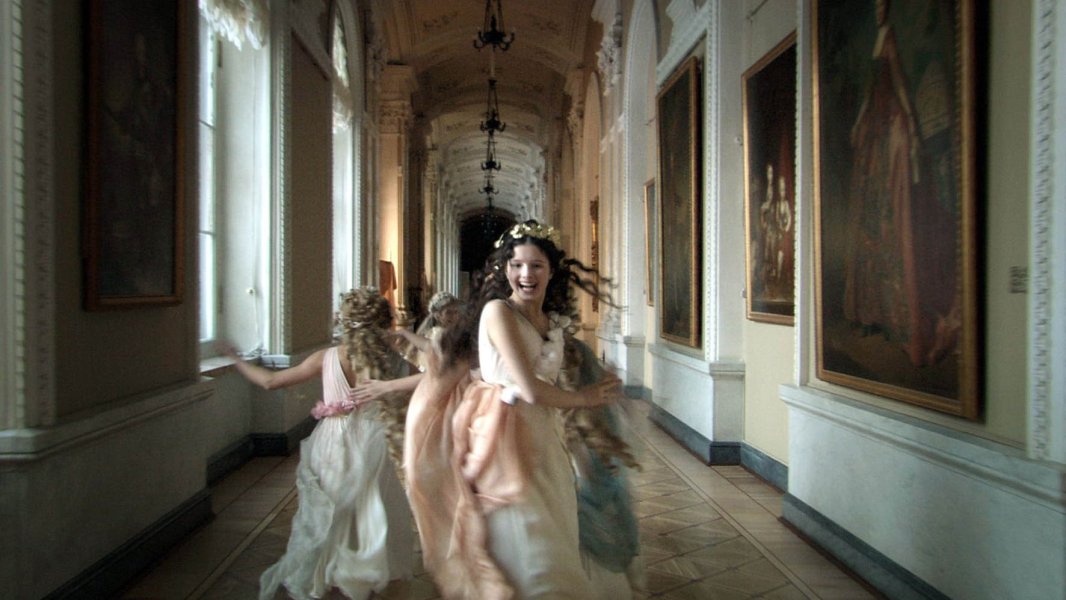
(Alexander Sokurov, 2002) · Consisting of a single, unbroken, 90-minute shot, Alexander Sokurov's miracle of a film concerns itself with nothing less than three centuries of Russian history. Filmed with 2,000 actors at the Hermitage Museum in St. Petersburg, an unnamed guide passes through rooms and time periods, amongst visitors and art. On his deathbed, Tarkovsky reportedly named Sokurov his successor, and Tarkovsky's extended, real-time takes can be seen as an influence on this marvelous and audacious cinematic achievement.
runtime: 99m format: DCP



